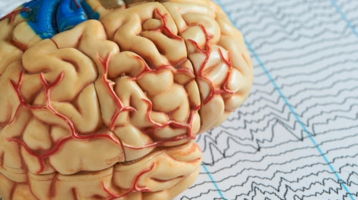Many people in the Western world are heavier than ideal. Despite the wide year-round availability of healthy foods, too many of us reach for high-calorie junk food on a regular basis. Part of this is due to cost and taste, but cravings also play a huge role. A large proportion of people describe late night food cravings that ultimately sabotage their diets, leaving them with ever-expanding waistlines despite other lifestyle changes.
Could our epidemic of insomnia contribute to these late night food cravings? According to recent studies on poor sleep and junk food cravings, sleep habits absolutely may be playing a role.
Sleep Deprivation and Junk Food Cravings
Do you raid the refrigerator late at night? Many people struggle to control their urges in the late night hours. According to new research, poor sleep habits may contribute to the Western world’s love of midnight snacks.

While a late night sandwich may not seem like a huge deal, this behavior is in turn associated with health risks that can have a devastating effect on an individual’s health.
Prior Research on Sleep and Junk Food
Several studies have found that late night eating is a statistically poor health habit. It increases the risk of obesity and diabetes, which is not surprising considering that a late night snack can be a large number of extra calories every day. This in turn can increase your chances of developing heart disease and other diseases associated with being overweight or obese.
However, late night snacking appears to have many risks independent of the extra food intake. Eating late at night has been linked to increases in skin damage and other health issues that are unrelated to weight.
Could Food Cravings Be the Link Between Poor Sleep and Metabolic Disease?
Sleep disorders are at epidemic levels in the United States and Europe. At the same time, people are getting heavier and sicker than we have ever seen before. This is counter-intuitive at a time when nourishing food and high quality health care are more available than ever before. Why are people developing chronic diseases at a younger age than ever before?
It may not be a coincidence that the increase in chronic disease comes at a time when we are sleeping worse than ever. The increase in food cravings may be part of the link. While this is all theoretical, the links are hard to deny. A lack of sleep leads to an increase in cravings for junk food. Excessive junk food cravings in turn lead to obesity and a wide range of related diseases.
The best decision for your health is to get enough sleep and to get it at the right times of night. Unfortunately, this is not always possible for modern people. Work schedules, travel, light pollution, and other factors can make it difficult to get on a healthy sleep schedule. However, this does not mean that you should resign yourself to a life of late night snacks and the associated health risks. There are ways to work through cravings and keep junk food dreams at bay.
Conquering Late-Night Cravings
That hankering for a midnight snack can be a difficult one to overcome. However, there are strategies that can give your willpower a boost. If late-night junk food is one of your weaknesses, consider trying one or all of these craving-busting ideas:
- Know your triggers. If you are used to snacking while watching late night TV, for example, consider watching it in a different place or with a bowl of healthier snacks on hand.
- Plan ahead. If you have plenty of healthy snacks on hand, you may be less likely to reach for potato chips and other empty calories.
- Curb your stress. Studies have found that meditation, yoga, and other calming behaviors can cut back on emotional eating.
- Focus on protein. High protein foods are more filling, leaving you less likely to overeat.
- Consider therapy. Even a few visits to a cognitive behavioral therapist may give you the coping skills needed to overcome cravings.
- Stop eating in front of the television. People who eat a table without distractions generally will take in fewer calories.
- Stop buying junk food. Ultimately, the best way to stop eating unhealthy foods late at night is to stop having them available.
Late night cravings may be part of the link between poor sleep and chronic disease. However, there are many ways to improve your sleeping habits and beat late night cravings, giving you the best possible chance at a long and healthy life.







